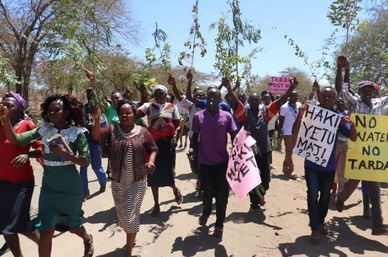×
The Standard e-Paper
Informed Minds Prefer The Standard

A court has ruled that anyone demonstrating will now shoulder the costs for cleanup and destruction.
In a verdict that now makes street protests somehow peaceful and orderly, those picketing will also be required to seek consent from persons adjacent to the demonstration zones in which organisers will be penalised in the event they go against the agreements.